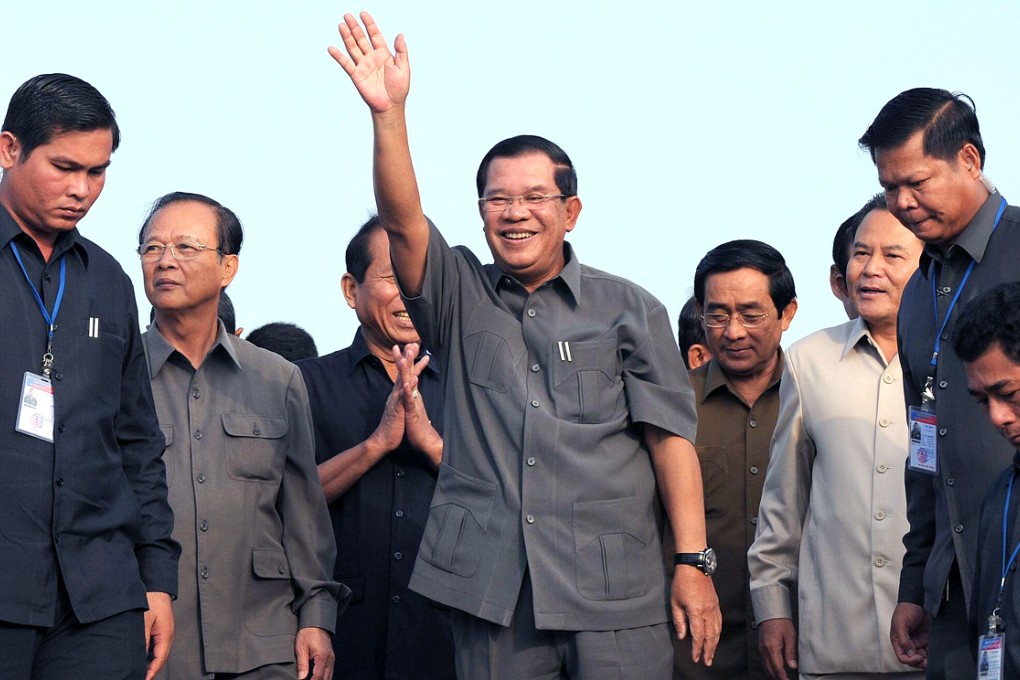Cambodia's leader, Hun Sen, marks 30 years in power
Leader defends his record, which critics say is marred by rights abuses

Hun Sen, Cambodia's tough and wily prime minister, marked 30 years in power yesterday, one of just a handful of political strongmen worldwide who have managed to reach the milestone.
Since first taking up the job of prime minister at age 33, he has consolidated power with violence and intimidation of opponents that continue to draw criticism from human rights advocates. But he can also take some credit for bringing modest economic growth and stability in a country devastated by the communist Khmer Rouge's regime in the 1970s, which left about 1.7 million people dead from starvation, disease and executions.
"Hun Sen is one of the cleverest politicians Asia has ever seen," said Sebastian Strangio, author of a recent biography of the Cambodian leader.
In a speech marking the ceremonial completion of the country's longest, 2,200-metre Japanese-funded bridge across the Mekong River yesterday, the 62-year-old Hun Sen defended his record, saying that only he was daring enough to tackle the Khmer Rouge and help bring peace to Cambodia.
"If Hun Sen hadn't been willing to enter the tigers' den, how could we have caught the tigers?" he said. He acknowledged some shortcomings, but pleaded for observers to see the good as well as the bad in his leadership.
Born to a peasant family in east-central Cambodia, Hun Sen initially joined the Khmer Rouge against a pro-American government. He defected to Vietnam in 1977, and accompanied the Vietnamese invasion that toppled his former comrades in 1979.